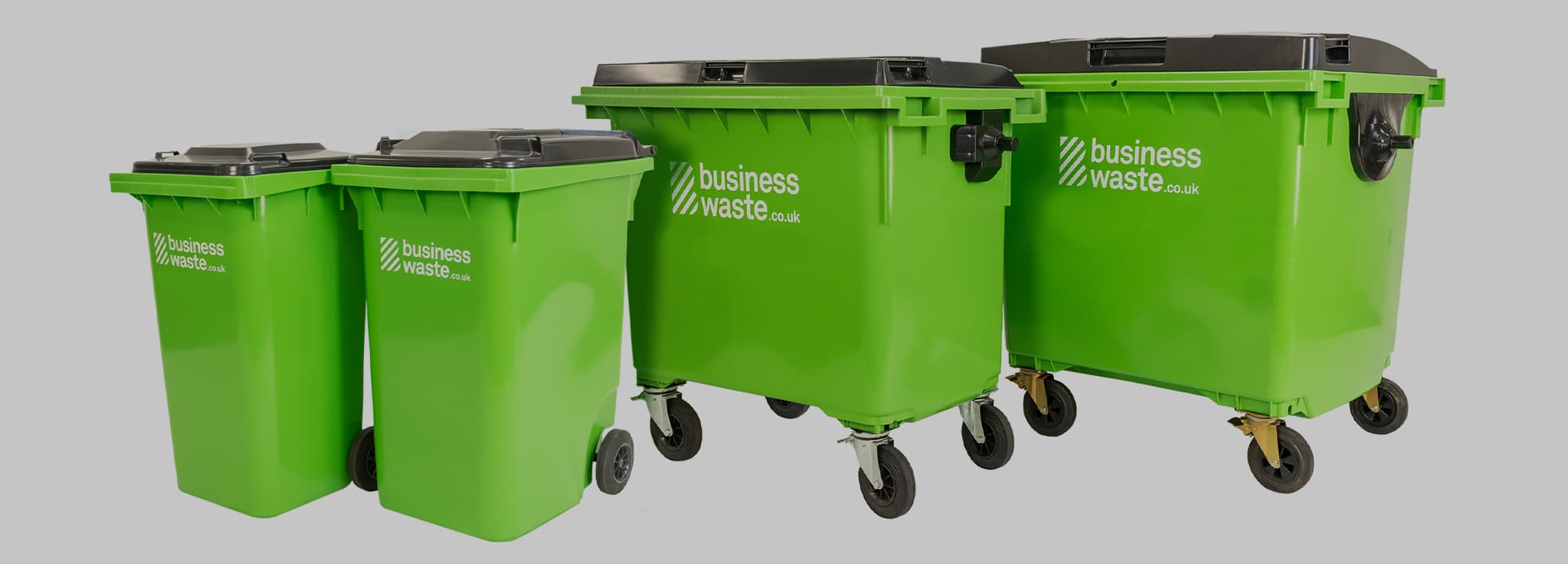
Waste Management Tips for Start-ups
Starting a new business is an exciting but busy time. There are lots of things to consider – from all the financial and legal aspects to branding and marketing. One less thrilling but vitally important area to focus on is your waste management, whatever type and size of company you’re starting.
There are various legal and environmental regulations that apply to storing, removing, and disposing of business waste. It’s essential that you have a plan in place so all waste your start-up creates is managed responsibly. This ensures compliance with such regulations, helps keep your waste management costs low, and reduces your environmental impact.
Ensure your start-up is a success with these waste management tips.

Get a FREE quote
Get a fast FREE quote for waste collection
- Free quote within 1 hr
- Any type of waste
- FREE bins and delivery
- We cover all of the UK
Check out your competitors
A good way to get an idea of your waste management needs is to assess what your competitors are doing. If you know anyone that runs a similar size and type of business, speak to them about their management. Information about the types and amounts of waste they generate can help you estimate potential waste production levels.
This should also provide an accurate idea of the costs involved for waste removal, which helps with budget planning. If you don’t know anyone running a business like your start-up, try and find out any waste management information about similar sized companies or those in the local area and apply to your situation.
Conduct a waste audit
Knowing what types and amounts of waste your start-up will produce should be estimated before you open your new business. This helps ensure you have the right number, size, and types of bins in place on your premises and an efficient collection schedule. Otherwise, you could end up with overflowing bins and hygiene issues.
Conducting a waste audit before opening your start-up is tricky, as you won’t know exactly how much rubbish you generate until you’re up and running. However, you should be able to identify the main types of waste you’ll produce and estimate rough amounts based on your planned operations.
Use any supplier, product, and competitor information you can for a rough idea of your expected waste production volumes. It will vary depending on the kind of business you run (for example, a new bakery will generate much more waste food than an office). A waste audit will help you decide what types and sizes of bins to use.
Create a waste management plan
Every start-up must develop a waste management plan before you begin business. This covers how your organisation will deal with all the waste it produces, including where it will be stored, who is responsible for removing it, and how much it will cost. It acts as a guide for stakeholders and others to your waste management processes.
A written plan provides a document others can refer to when necessary. It can be updated as your business grows and adapts to any challenges. Findings from your audit should be implemented into the plan so it covers all the legal, financial, and environmental considerations. Your waste management plan should include:
- Responsibilities – the company responsible for removing waste from your premises (this must be a licensed waste carrier). Also include other responsibilities, such as moving bins to the collection point and communicating with the waste management company.
- Bins and collections – the types, sizes, and number of bins you’ll use and how often they’ll be collected. This can be updated to reflect any changes in your business.
- Goals – waste reduction and recycling goals. This could be a percentage of your overall waste you aim to recycle or methods for keeping it out of landfill.
- Strategies – any plans you have to reduce waste, lower costs, and improve recycling rates. It could be by using less packaging, working with recycled materials, and educating employees.
- Costs – all the costs related to managing your commercial waste, such as any bin hire costs, removal rates, landfill tax, and other fees. Factor in some emergency funds in case of any surprise extras.
Prioritise recycling
Recycling as much waste as possible that your business produces is vital to reduce the environmental impact of your start-up. It also helps you save money on your waste management costs by minimising how much of your commercial waste goes to landfill, lowering your landfill tax bill.
When creating a waste management plan, you should prioritise recycling where possible. The easiest way to do this is by introducing a recycling programme into your start-up from the beginning. To do this:
- Work out what types of waste your business creates are recyclable so you can separate and store them appropriately before collection and recycling to reduce contamination risks.
- Work with a waste management company that removes your rubbish and recycles it, providing a free duty of care certificate confirming it’s recycled.
- Place relevant recycling bins around your premises close to the point of production with clear signs for each waste type.
- Train employees about the importance of recycling to benefit the environment and your business.
- Regularly review your recycling processes to see if any new bins need introducing, increasing in size, or other improvements could be made.

Carefully consider suppliers
Businesses have a responsibility to reduce how much waste they produce. Minimising the amount of rubbish (especially non-recyclable waste) that you create at the source is one of the best ways to do this. Work with suppliers that use recyclable packaging, materials, and products to avoid creating non-recyclable waste.
Seek reusable products where possible rather than disposable ones and products made from recycled materials. Using local suppliers also reduces the energy and emissions used to deliver products, which has a lower environmental impact. This should all significantly reduce how much waste your start-up creates or at least ensure most of it can be recycled.
Donate waste items
A great way to reduce waste from your start-up is to donate items and materials you no longer need to others. Many charities, organisations, and causes will happily take old furniture, electricals, and various other items off your hands. This is a free and environmentally friendly way to get rid of some waste.
Even things like empty plastic bottles can be used by schools, while bricks and rubble might be used on other construction sites or in gardens. Whatever waste you have, consider asking a local charity or organisation if they’re interested in it. You can even build in any regular donations to your waste management plan.
Partner with a waste
management company
Only licensed waste carriers can remove waste from your start-up business. Unless someone is a registered waste carrier in your company, the easiest option is to use a professional waste management company such as Business Waste. This provides a reliable waste removal service for all types of rubbish you produce.
Our waste management services include:
- Waste collections
- Free bins and deliveries (only pay for collections)
- Waste audits
- Waste management plans
- Advice and consultations
Working with a waste management company offers the reassurance that all your rubbish is managed responsibly, legally, and safely. Partnering with experts in the waste industry means you can receive expert advice and flexibility to change your bins and collections as your company grows and adapts.
Get in touch for a free quote for waste collections for your start-up and any other advice you need – call 0800 211 8390 or contact us online today.
Get a fast and free quote
Get a fast FREE quote for your waste collection
- Free quote within 1 hr
- Any type of waste
- FREE bins and delivery
- We cover all of the UK